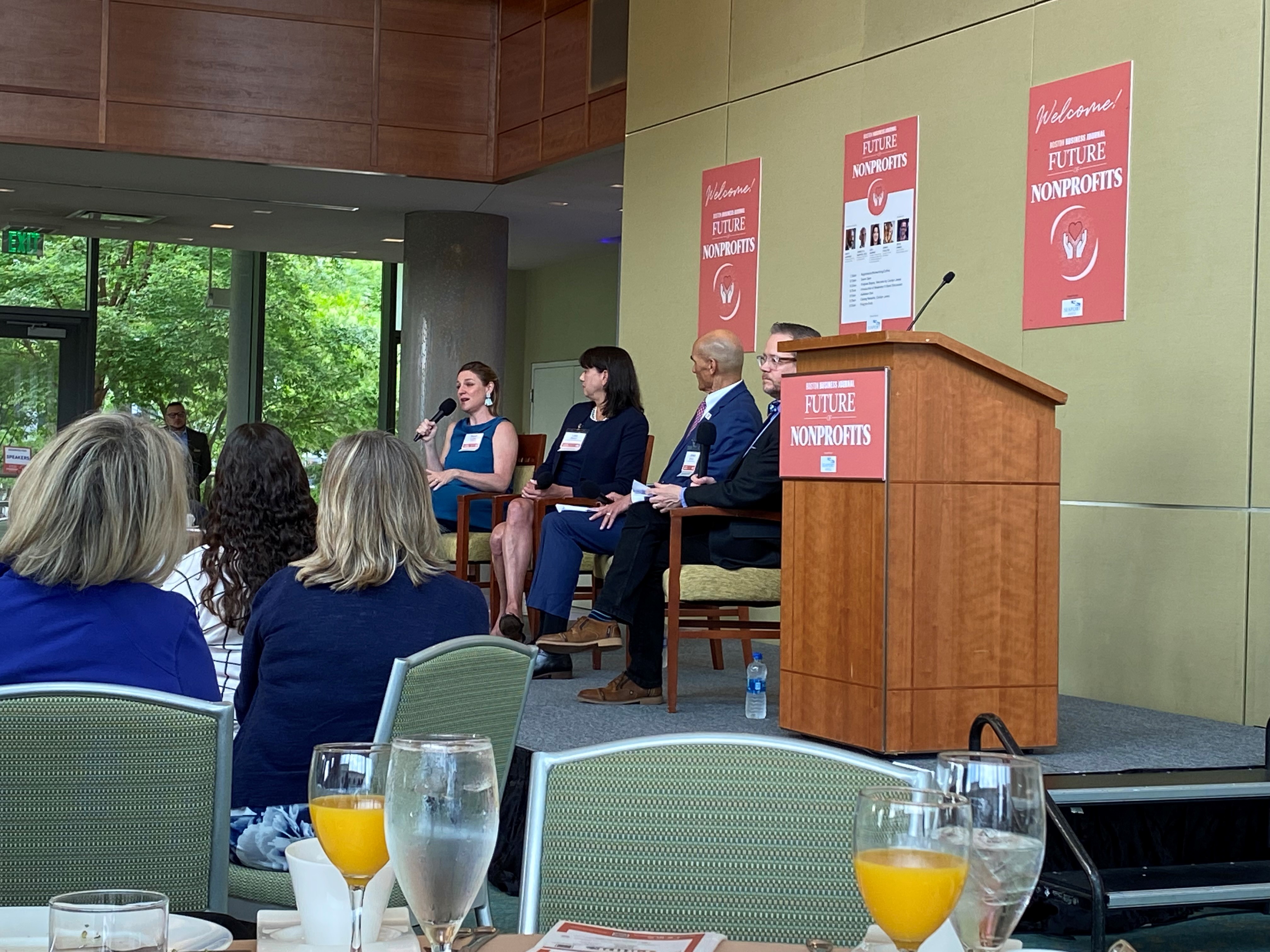Even if you owned a crystal ball, you could never have imagined something like the pandemic, which has changed our world in so many ways.
Recently Executive Editor of the Boston Business Journal Doug Banks led a discussion about the future of nonprofits. The panel of nonprofit experts was impressive: James Morton, President, and CEO of YMCA of Greater Boston; Lisa Murray , President of Citizens Bank of Massachusetts; and Sarah Poulter, Executive Director of WriteBoston.
Here are some of the themes that emerged from the conversation, which painted a mostly optimistic picture of the post pandemic world for nonprofits.
- Collaboration is on the rise – More nonprofits are teaming up to tackle common problems, which they come at from different angles. For example, during the pandemic the YMCA of Greater Boston, Latinos for Education, The BASE, and Inquilinos Boricuas en Accion came together to form the “Community Learning Collaborative.” The group created learning pods to support underserved students. “We shared leadership, we shared resources and we shared know how,” says Morton. “Having common values, a collective vision and deep caring for the organizations that we represent was an essential part of building a strong collaboration.” Morton also found that donors respond strongly to group efforts that benefit the community.
- Hybrid fundraising is challenging but beneficial – Although everyone on the panel is relieved to be able to have in-person fundraising events, the virtual option is not off the table. “For me, the virtual experience allows us to have an open invitation to anyone who is curious to learn and get engaged and that is a real benefit,” Poulter said. However, she admitted it is tough to plan an event that provides both options. The group agreed that having the ability to hold virtual meetings makes it easier to bring potential donors and nonprofits together.
- Trust philanthropy is emerging – The panel talked about how more donors are giving unrestricted funds based on their belief in the organization’s work. “It is based on the idea that people closest to the problem have the best understanding of how to address it,” Poulter said. In addition, the group said another welcome development is that more philanthropists give funding that lasts over a longer period of time, reducing the pressure to produce measurable results right away or risk losing the funding.
- Donating experience in addition to money – While giving financial support remains critical, many corporate donors are augmenting their support through targeted, skills-based volunteering. “As bankers, we understand balance sheets, so we have bankers that go to nonprofits and teach about financial literacy and personal finance,” Murray said. According to Morton, the YMCA of Greater Boston has an Achievers Program where experienced adults share their wisdom with students who have a GPA of 2.5 or less to encourage them to work toward their future.
- Nonprofit salaries are rising – The group admitted that nonprofits are feeling the stress and strain of the Great Resignation just as much as people in other industries are. The leaders on the panel talked about the importance of securing a living wage for their staff as a strategy that pays off in the long run. This helps them to both attract diverse new talent and keep the valued staff they already have. In addition, some organizations are offering referral incentives, starting bonuses and professional development programs to keep good people in place.
Thanks to the Boston Business Journal for hosting such an important discussion. The world may look different than it did before the pandemic, but the commitment of nonprofits to meet the challenges we all face remains as inspiring as ever.


